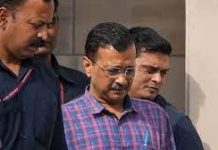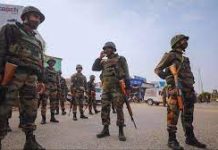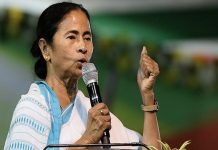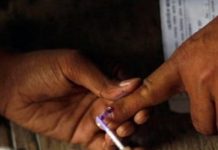 In the ongoing process of elections being held for Lok Sabha in seven phases, with first phase being over on April 11, southern states of India, represented by Tamil region comprising Tamil Nadu and Puducherry accounting for 40 parliamentary seats, Telugu region comprising Andhra Pradesh (25 seats) and Telangana (17 seats); Kannada region represented by Karnataka with 28 seats and Malayalam region represented by Kerala accounting for 20 seats, entail some distinct features that are seldom seen in other parts of India. With the exception of Karnataka where the two national parties — BJP and Congress — are directly pitched against each other with JD (S) as an ally of the Congress, in rest of the southern states, regional satraps rule the political roost.
In the ongoing process of elections being held for Lok Sabha in seven phases, with first phase being over on April 11, southern states of India, represented by Tamil region comprising Tamil Nadu and Puducherry accounting for 40 parliamentary seats, Telugu region comprising Andhra Pradesh (25 seats) and Telangana (17 seats); Kannada region represented by Karnataka with 28 seats and Malayalam region represented by Kerala accounting for 20 seats, entail some distinct features that are seldom seen in other parts of India. With the exception of Karnataka where the two national parties — BJP and Congress — are directly pitched against each other with JD (S) as an ally of the Congress, in rest of the southern states, regional satraps rule the political roost.
Regional parties are more in reckoning in southern states and they have been thriving on strong linguistic and cultural identities and have often served as a potent barrier to the BJP’s Hindutva nationalist discourse. State-specific issues often acquire salience over national issues. Unlike north India where the BJP has seemingly succeeded in evoking emotions in its favour in the wake of martyrdom of over 40 Jawans in Pulwamaand subsequent air strikes, the response of southern states to this jingoism has mostly been lukewarm. Region-wise appraisal can help us in having cognizance of the electoral prospects of different political players on the horizon.
Telugu region
Telugu region comprises Andhra Pradesh having 25 Lok Sabha seats and Telangana having 17 seats and both these states are dominated by regional parties. Many experts opine that the BJP and Congress are not even marginal players here. In Andhra Pradesh the real contest is between Telugu Desam Party (TDP) led by Chandrababu Naidu and Yuvjana Sramika Ryuthu Congress (YSRC) party led by Jagan Reddy. Observations garnered by this author during his recent visit to these states tally with most of the pre-poll surveys predicting 17 to 20 seats for YSRC party and rest for the TDP. Both the BJP and Congress are expected to draw a blank here.
In Telangana, the ruling Telangana Rashtra Samiti (TRS), which recently recorded a landslide victory in the state assembly elections, is having a tie-up with the All-India Majlis-E-Ittehadul Muslimeen (AIMIM). And this combination is predicted to sweep all 17 Lok Sabha seats thereby leaving the TDP, Congress and the BJP toiling hard for making their presence felt. while the BJP hopes to continue its flag flying.The projected win for Jagan Reddy in Andhra Pradesh and K. Chandrasekhar Rao in Telangana will provide both the potentially decisive role in the formation of any coalitiongovernment at the Centre after May 23.
Absence of a charismatic leader like Nandamuri Taraka Rama Rao, better known as NTR, who was an influential figure in the Telugu region and earned the status of a national leader, is widely felt. However, post-poll developments in this region arebound to impact national politics. Under the given situation, governance model in both states is excessively dependent on personality cult.
Tamil region
Tamil region comprising Tamil Nadu with 39 seats and the Union Territory of Puducherry accounting for one seat, together form 40 seats of Lok Sabha. Undoubtedly, the AIADMK is in power in Tamil Nadu; nevertheless, in the aftermath of the demise of Jayalalitha, the AIADMK is bereft of a powerful leader who basked in the glory of charismatic MGR. Currently, the AIADMK, riven with inner dissensions, is a coalition of eight parties, including the BJP. With the recent demise of M. Karunanidhi, the DMK is also bereft of a powerful leader.
The DMK is a coalition of nine parties, including Congress. Both critics and predictions made by many pre-poll surveys project a divided picture about the outcome of the Lok Sabha election in Tamil region. In the wake of AIADMK being riven with internal dissensions and absence of a strong party leader, the DMK-led alliance is expected to call the shots owing to its leader Stalin enjoying salience over his rivals and legacy of Karunanidhi. Some critics have opined that the alliance led by the DMK may secure over 25 seats and play a decisive role in the formation of a next coalition at the Centre.
Electoral prospects of the BJP in Tamil Nadu, which is the only southern state where it is a part of an alliance, hinge on the ruling All India Anna Dravida Munnetra Kazhagam (AIADMK), Pattali Makkal Katchi (PMK) and the Desiya Murpokku Dravida Kazhagam (DMDK). In 2014, the BJP could win only one seat and that also by virtue of its alliance with smaller regional parties. Currently, it is contesting for just five seats; nonetheless, in the wake of anti- incumbency against the AIADMK and the latter being ridden with acute factionalism, some experts opine that it might be very cumbersome for the BJP to retain even a single seat that it won in 2014. The DMK-Congress alliance may have a field day on May 23.
Kannada region
Kannada region, represented by Karnataka and comprising 28 seats, presents an interesting example of rivalry between the BJP and Congress. The BJP has the distinction of having won 18, 19 and 17 of the 28 seats in 2004, 2009 and 2014 respectively. However, in the present scenario, the BJP may find it difficult to replicate its previous performance in view of the ruling Congress-JD (S) alliance which is to witness direct contest between the alliance and the BJP in stead of a triangular contest.
In the wake of BJP facing a direct contest with Congress-JD (S) alliance, some experts suggest that the grassroots arithmetic could be shaky for the BJP. The Congress-JD (S) alliance may help it galvanize caste base to improve parliamentary poll vote share and the combine vote share of the alliance could well be daunting for the BJP. If the alliance arithmetic that recently worked at the grassroots in enabling Congress to wrest Bellari seat from the BJP, is any indication then it can be presumed that if this arithmetic goes well, it could make it difficult for the BJP to touch double digit number.
Malayalam region
Malayalam region is represented by Kerala and it accounts for 20 Lok Sabha seats. This region has traditionally witnessed bi-polar political contest between the CPI (M)-led Left Front and the Congress-led United Democratic Front. However, in recent years, the BJP has also been making efforts to make inroads into Kerala and for the 2019 Lok Sabha election, the BJP has tied up with the local Bharat Dharam Jana Sena and Kerala Congress (Thomas), with the hope to wrest the Thiruvananthapuram seat.
In 2014, the BJP ceded the Thiruvananthapuram parliamentary seat to Congress by a narrow margin of 15, 000 votes and this time the BJP is striving hard to win it. In the wake of firmly polarized nature of state politics, until recently it was given to understand that there would be some tactical understanding between the Congress and the Left Parties to defeat the BJP at the national level which could be worked at local level to keep the BJP at bay; Nevertheless, Congress decision to field its president Rahul Gandhi from Wayanad has been criticized by the Left leadership. Despite this development, coupled with the fact of the recent polarization of the Sabarimala issue, some experts rule out the possibility of the BJP of gaining any foothold in Kerala and the Congress is said to be the net gainer followed by the Left.
Way forward
The BJP’s strategy of replicating its 2014 performance when it won 21 seats out of 130 in 2019 is seemingly a herculean task. Of the 21 seats it won in 2014, 17 were from Karnataka, 3 from undivided Andhra Pradesh and one from Tamil Nadu.
Apart from the BJP’s limited appeal, ground-level arithmetic in Karnataka and split with the TDP in Andhra Pradesh may limit BJP to less than the double-digit number. The Congress is making efforts to deepen its roots in Kerala and Tamil Nadu. The BJP’s hopes of roping in Jagan Reddy and K. Chandrasekhar Rao in NDA also seem to be a far-fetched idea in view of anti-BJP pronouncements of these regional leaders. However, politic like cricket is an unpredictable game where anything can happen even at the last moment.
letters@tehelka.com












